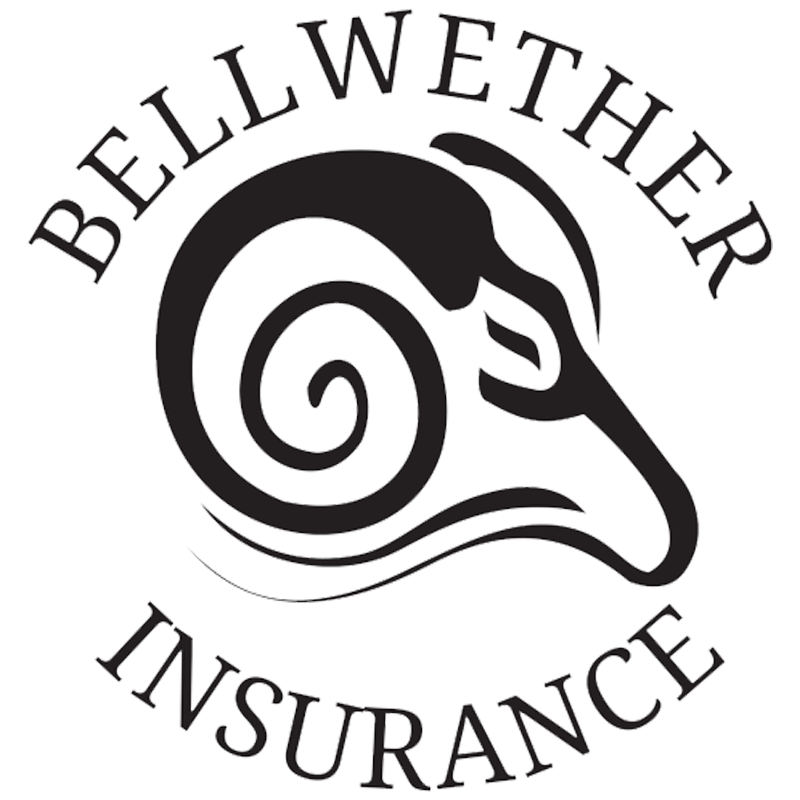Ohio License & Permit Bond

Index
Contact Us
Phone
216-600-2828
Location
100 N. Center Street PO Box 627 LaGrange, OH 44050
License & Permit Bonds are a crucial part of doing business in Ohio. Whether you're a contractor, auto dealer, or involved in the liquor industry, having a bond is essential. In this article, we will explore everything you need to know about License & Permit Bonds in Ohio, including understanding their definition, importance, and various types. We will also discuss the legal framework for bonds in Ohio, the process of obtaining one, and how to maintain compliance with bond requirements.
Understanding License & Permit Bonds
Definition of License & Permit Bonds
License & Permit Bonds, also known as surety bonds, are a type of contract between three parties: the obligee (the entity requiring the bond), the principal (the party obtaining the bond), and the surety (the bonding company). These bonds provide financial protection to the obligee if the principal fails to fulfill their obligations. It acts as a guarantee that the principal will comply with state laws and regulations.
License & Permit Bonds are a critical component of the business world, ensuring that parties involved in various transactions are protected. They serve as a legal agreement that establishes trust and accountability between the obligee and the principal. By requiring a bond, the obligee can have peace of mind knowing that they have a form of recourse if the principal fails to meet their obligations.
Furthermore, License & Permit Bonds are not limited to a specific industry or sector. They are applicable in a wide range of fields, including construction, real estate, healthcare, and transportation. Whether it's a contractor working on a construction project or a healthcare provider obtaining a license, these bonds play a significant role in ensuring compliance and protecting the interests of all parties involved.
Importance of License & Permit Bonds
License & Permit Bonds play a crucial role in Ohio's business landscape. They protect consumers and the public by ensuring that businesses operate ethically, follow regulations, and fulfill their contractual obligations. The bonds act as a safety net, offering financial recourse to individuals or entities harmed by a business's misconduct.
Moreover, License & Permit Bonds provide assurance to potential clients or customers that a business operates with integrity and reliability. They instill trust and confidence in the business, thereby enhancing its reputation and marketability.
For example, in the construction industry, License & Permit Bonds are often required before a contractor can start a project. This requirement ensures that the contractor has the necessary skills, resources, and financial stability to complete the job. It protects the property owner from potential financial losses or damages caused by the contractor's negligence or failure to meet contractual obligations.
In the healthcare sector, License & Permit Bonds are essential for healthcare providers seeking to obtain licenses. These bonds serve as a guarantee that the provider will adhere to ethical standards, maintain patient confidentiality, and provide quality care. They offer a layer of protection for patients, ensuring that they can seek compensation if they suffer harm due to the provider's negligence or malpractice.
Furthermore, License & Permit Bonds also contribute to the overall economic stability of a region. By promoting fair and ethical business practices, these bonds help create a level playing field for businesses. They discourage fraudulent activities and ensure that businesses operate within the boundaries of the law, fostering a healthy and competitive business environment.
In conclusion, License & Permit Bonds are a vital tool in protecting the interests of various parties involved in business transactions. They provide financial security, promote ethical practices, and enhance the overall trust and confidence in the business community. Whether it's a construction project, a healthcare facility, or any other business endeavor, License & Permit Bonds play a crucial role in ensuring compliance, accountability, and consumer protection.
The Legal Framework for Bonds in Ohio
When it comes to obtaining License & Permit Bonds in Ohio, businesses must navigate through a complex web of legal requirements. Ohio has specific bonding laws that dictate the requirements for obtaining these bonds, and these laws can vary depending on the industry and the type of bonding needed.
It is essential for businesses to familiarize themselves with the applicable regulations to ensure compliance and avoid any legal issues. By understanding the legal framework surrounding bonds in Ohio, businesses can operate with confidence and peace of mind.
Ohio's Bonding Laws
Ohio's bonding laws are designed to protect the interests of both businesses and consumers. These laws outline the specific requirements and procedures that businesses must follow in order to obtain License & Permit Bonds.
For example, in the construction industry, contractors are required to obtain bonds to guarantee their work and protect clients from financial loss. These bonds ensure that contractors fulfill their contractual obligations and provide compensation in the event of any breaches or failures.
Similarly, liquor-related businesses in Ohio are subject to specific bonding regulations enforced by the Ohio Division of Liquor Control. These regulations aim to ensure responsible business practices and protect consumers from any potential harm.
By adhering to Ohio's bonding laws, businesses can demonstrate their commitment to operating ethically and responsibly, which can enhance their reputation and build trust with clients and customers.
Regulatory Bodies for Bonds in Ohio
Several regulatory bodies oversee bonding in Ohio, each with its own specific jurisdiction and responsibilities. These regulatory bodies play a crucial role in enforcing the bonding laws and ensuring compliance within various industries.
The Ohio Department of Commerce is one such regulatory body that handles licensing and bonding requirements for various industries. This department works to protect consumers and promote fair business practices by ensuring that businesses meet the necessary bonding obligations.
In addition to the Ohio Department of Commerce, there are specific regulatory bodies that govern certain industries. For example, the Ohio Construction Industry Licensing Board oversees bonding requirements for contractors. This board ensures that contractors meet the necessary bonding obligations to protect clients and uphold the integrity of the construction industry.
The Ohio Division of Liquor Control is another regulatory body that focuses on bonding regulations for liquor-related businesses. This division works to prevent illegal activities and promote responsible alcohol sales by enforcing bonding requirements.
Businesses operating in Ohio should consult these regulatory bodies to understand the specific bonding regulations relevant to their industry. By staying informed and compliant, businesses can avoid legal issues and operate with confidence.
Types of License & Permit Bonds in Ohio
Ohio offers a variety of License & Permit Bonds to ensure the protection and compliance of businesses in the state. Let's explore some of the most common types:
Contractor License Bonds
Contractor License Bonds are a vital requirement for contractors in Ohio's construction industry. Plumbers, electricians, and general contractors, among others, must obtain these bonds to provide assurance to their clients and fulfill their contractual obligations.
These bonds serve as a safety net for clients, offering financial compensation in case a contractor fails to complete a project or violates state or industry regulations. Furthermore, Contractor License Bonds play a crucial role in protecting workers' rights by ensuring that contractors meet their obligations, such as paying wages and taxes.
Auto Dealer Bonds
Auto Dealer Bonds are essential for businesses involved in the selling and leasing of vehicles in Ohio. Car dealerships, auction dealers, and other auto-related establishments must obtain these bonds to protect consumers from fraudulent or unethical business practices.
By requiring Auto Dealer Bonds, the state ensures that dealers comply with laws and regulations governing their industry. These bonds cover various aspects, including the proper handling of funds, truthful advertising, and delivering clear title documentation. In the unfortunate event of financial loss due to a dealer's misconduct, Auto Dealer Bonds provide customers with financial compensation.
Liquor License Bonds
Ohio's liquor industry is subject to specific regulations, and establishments such as bars, restaurants, and retailers that sell alcoholic beverages must obtain Liquor License Bonds. These bonds are designed to protect the state and its residents by ensuring compliance with liquor laws and regulations.
Liquor License Bonds guarantee that license holders uphold their responsibilities, which include preventing underage sales, paying taxes, and maintaining a safe and lawful environment. By providing a remedy for individuals harmed by violations, these bonds contribute to maintaining the integrity and accountability of the liquor industry in Ohio.
These are just a few examples of the License & Permit Bonds available in Ohio. Each bond serves a unique purpose, safeguarding the interests of clients, consumers, and the state itself. By requiring these bonds, Ohio ensures that businesses operate responsibly and ethically, fostering a fair and secure environment for all.
The Process of Obtaining a Bond in Ohio
Steps to Apply for a Bond
The process of obtaining a License & Permit Bond in Ohio may seem complex, but it can be simplified into a few key steps. Firstly, identify the type of bond required for your industry or specific business activity. Gathering the necessary documentation, such as financial statements and business licenses, is the next step.
Once prepared, contact a reputable bonding company licensed in Ohio who can guide you through the application process. Discuss your specific bonding needs and provide the requested information. The surety underwriter will review your application and evaluate factors such as creditworthiness, background checks, and financial stability.
If approved, you will receive a bond quote outlining the terms, coverage, and premium. Once agreed upon, sign the indemnity agreement, pay the premium, and obtain the bond. It is vital to maintain open communication with the bonding company and promptly provide any requested updates or renewals.
Costs Involved in Bonding
The cost of License & Permit Bonds in Ohio varies depending on several factors. These include the bond amount, the applicant's creditworthiness, industry risk factors, and the bonding company's pricing structure. Typically, bonding companies charge a percentage of the bond amount as an annual premium.
Since each business is unique, it is advisable to reach out to multiple bonding companies, compare quotes, and consider the terms and conditions offered. Doing so will help you find the best combination of coverage and affordability for your specific bonding needs.
How to Maintain Compliance with Bond Requirements
Regular Renewal of Bonds
License & Permit Bonds in Ohio typically have a duration of one year but can vary depending on the bonding requirements for your industry. It is crucial to keep track of your bond's expiration date and initiate the renewal process in a timely manner.
The bonding company will usually send renewal notices well in advance, reminding you of the upcoming expiration. Respond promptly, supply any requested documentation, and pay the premium to maintain uninterrupted bond coverage. Failing to renew the bond on time can result in penalties, fines, and potential suspension or revocation of licenses.
Avoiding Bond Violations
To maintain compliance with bond requirements, businesses must understand and adhere to all relevant laws, regulations, and industry standards. Stay informed about any changes or updates to these requirements and make the necessary adjustments to your operations.
Regular internal audits and reviews can help identify any areas of non-compliance or potential violations. Take proactive steps to address these issues promptly to avoid any harm to your business reputation or legal consequences. Maintaining open communication with regulatory bodies and consulting legal professionals when needed can further support your compliance efforts.
In conclusion, License & Permit Bonds are a fundamental part of conducting business in Ohio, providing financial protection and ensuring compliance with state laws and regulations. By understanding the definition, importance, types, and the process of obtaining a bond, businesses can navigate the bonding landscape effectively. Additionally, maintaining compliance and avoiding bond violations through regular renewal and adherence to requirements is essential for long-term success. By prioritizing License & Permit Bonds, businesses can build trust, enhance their reputation, and safeguard their operations.


